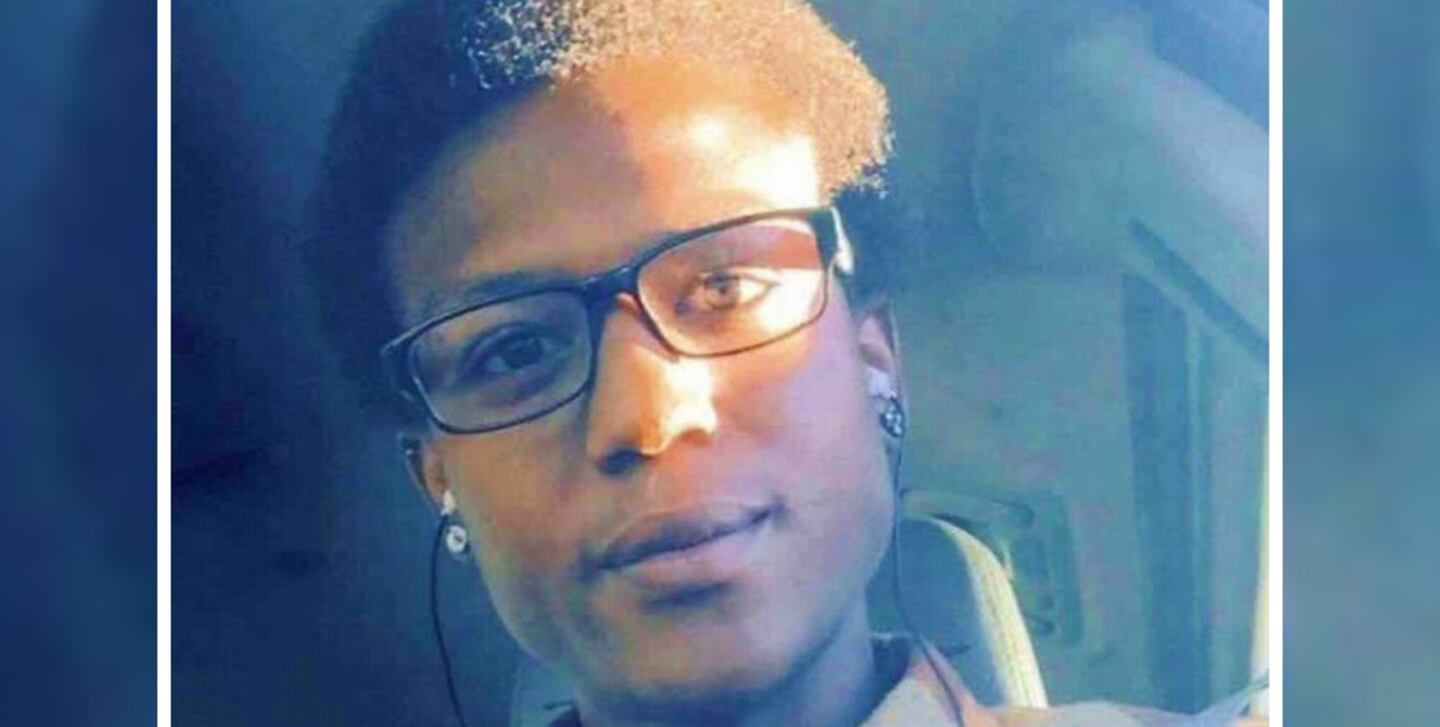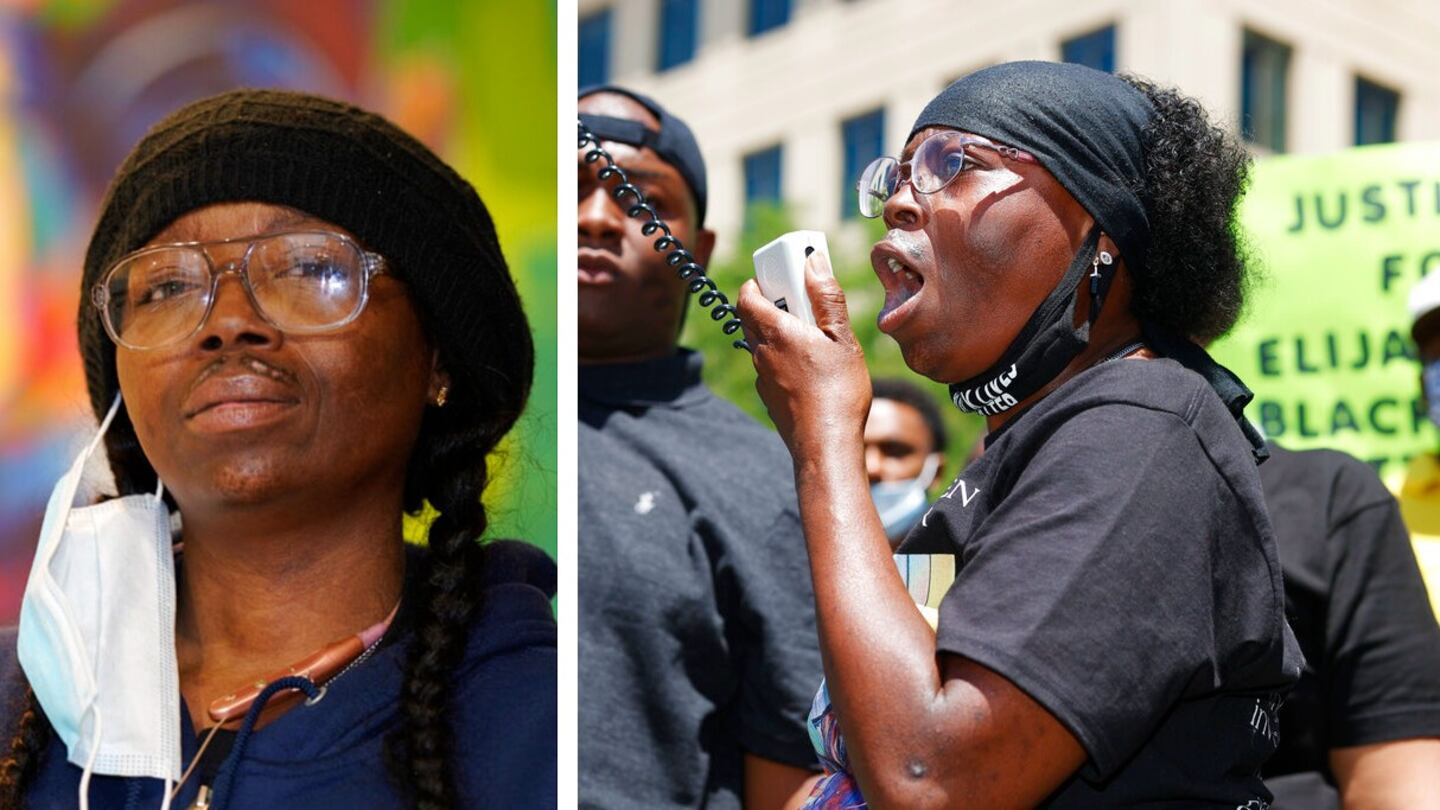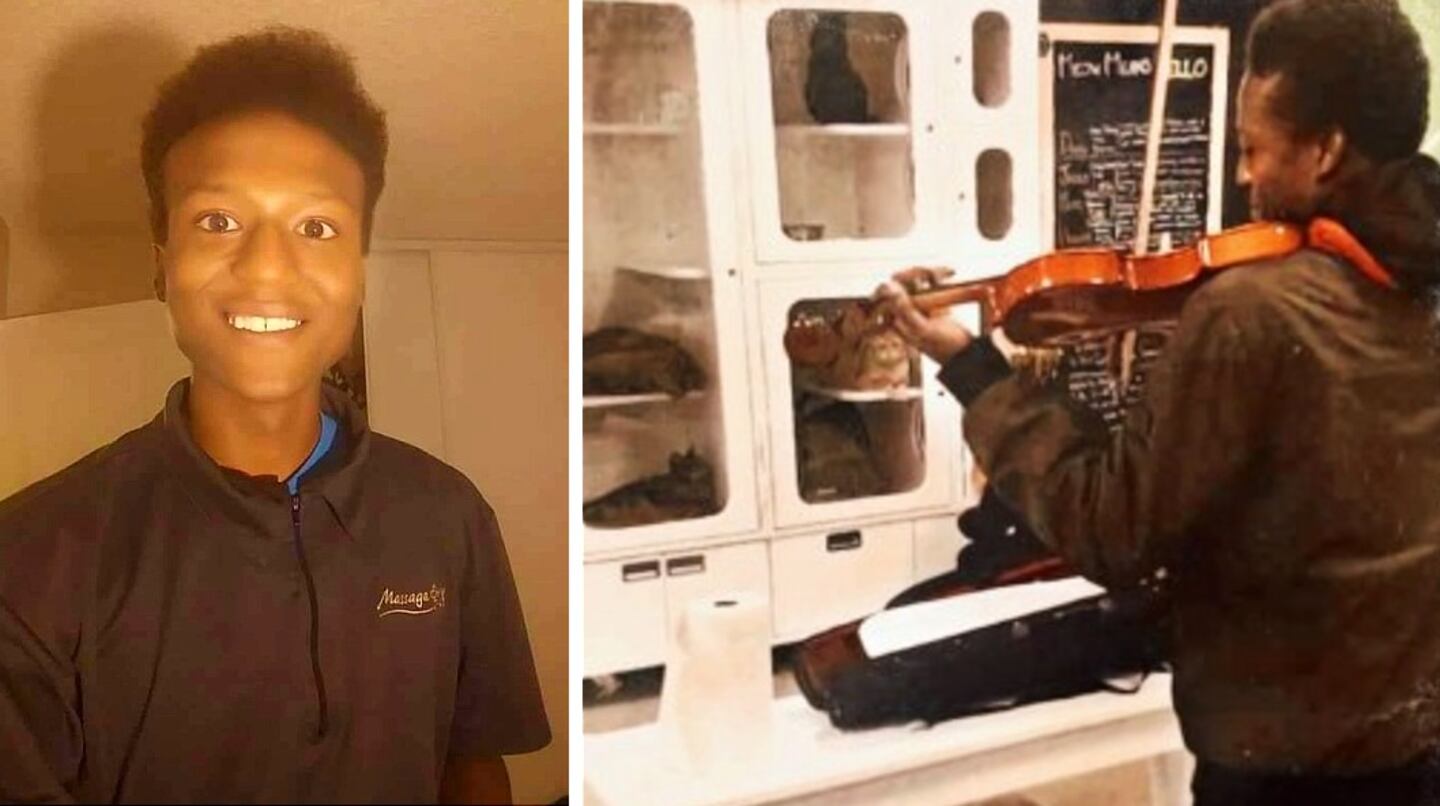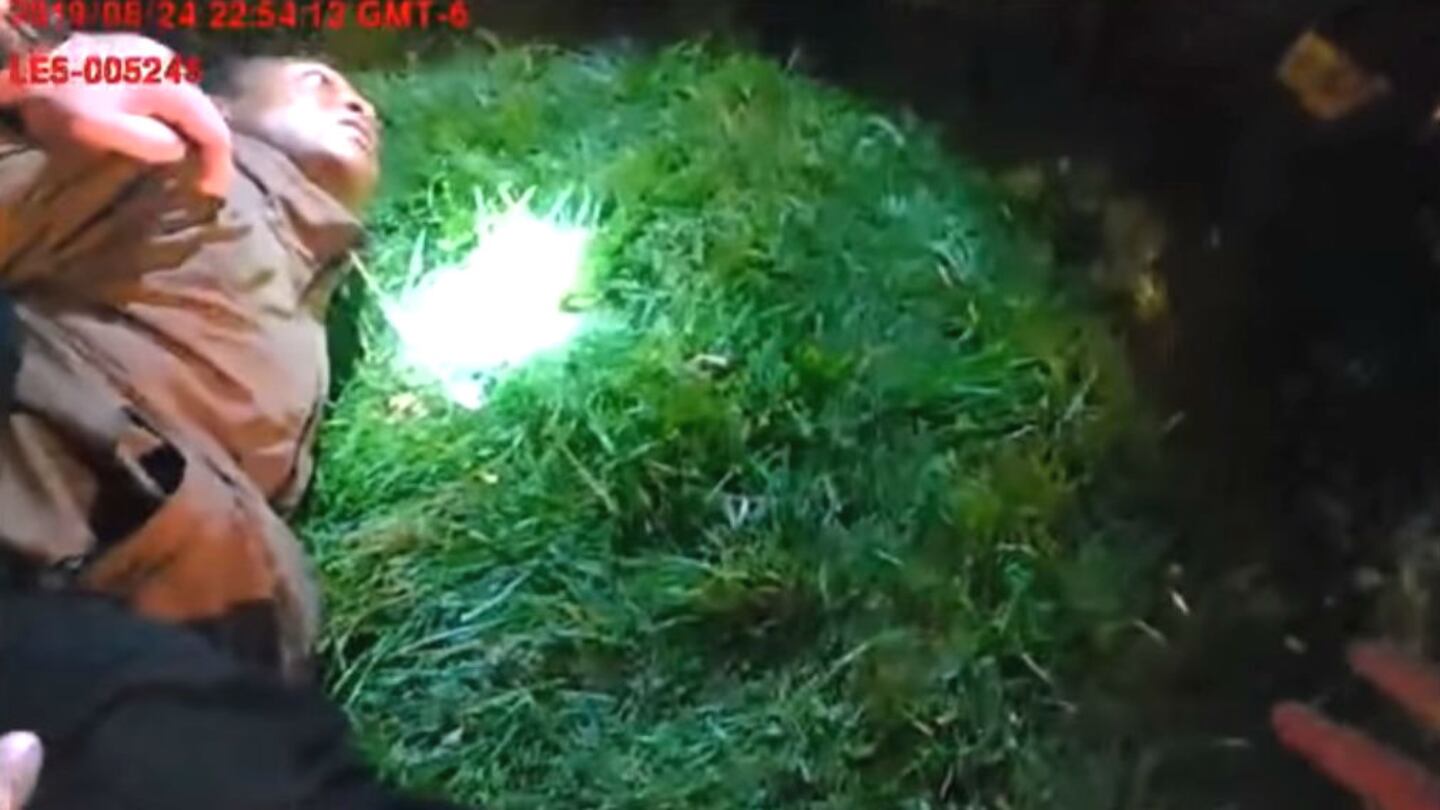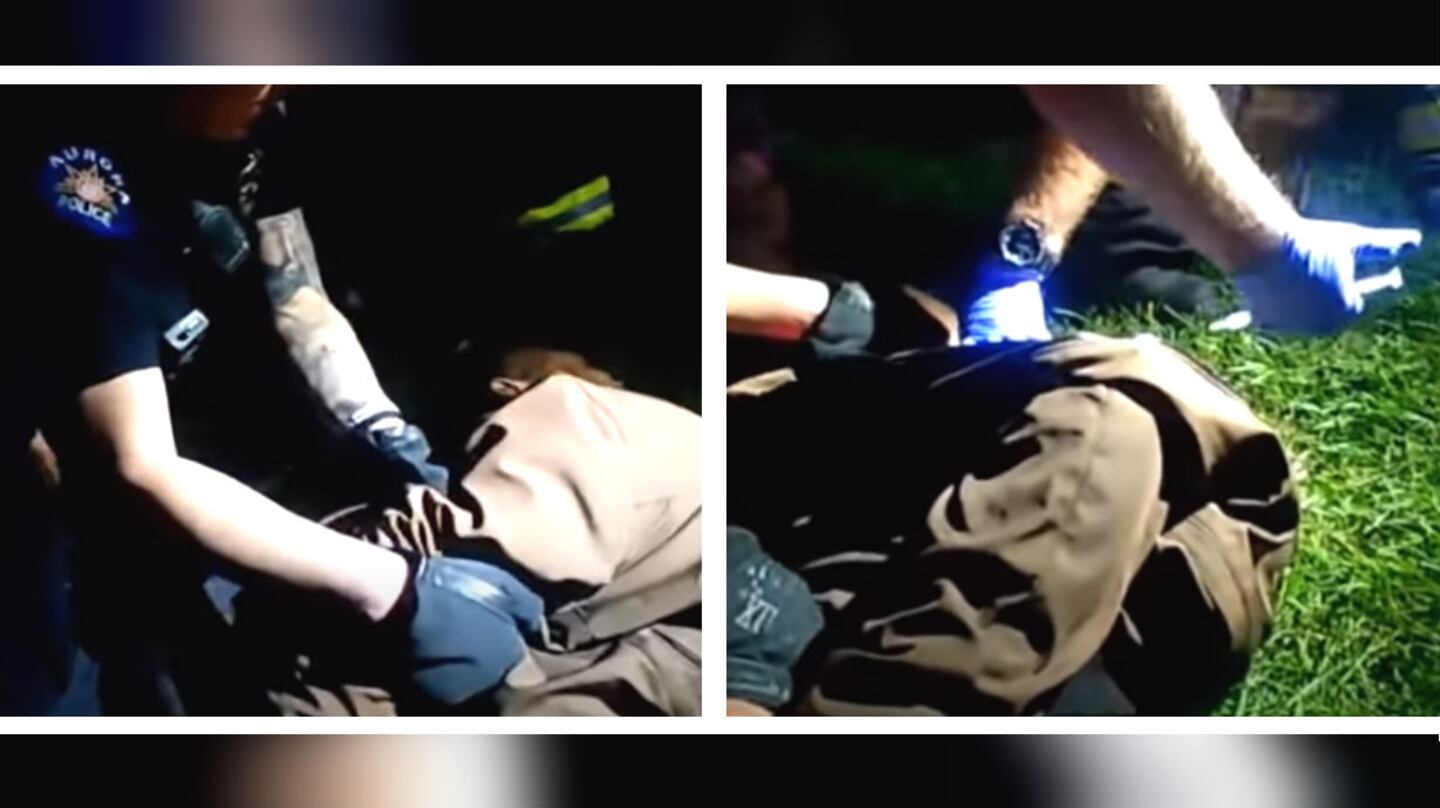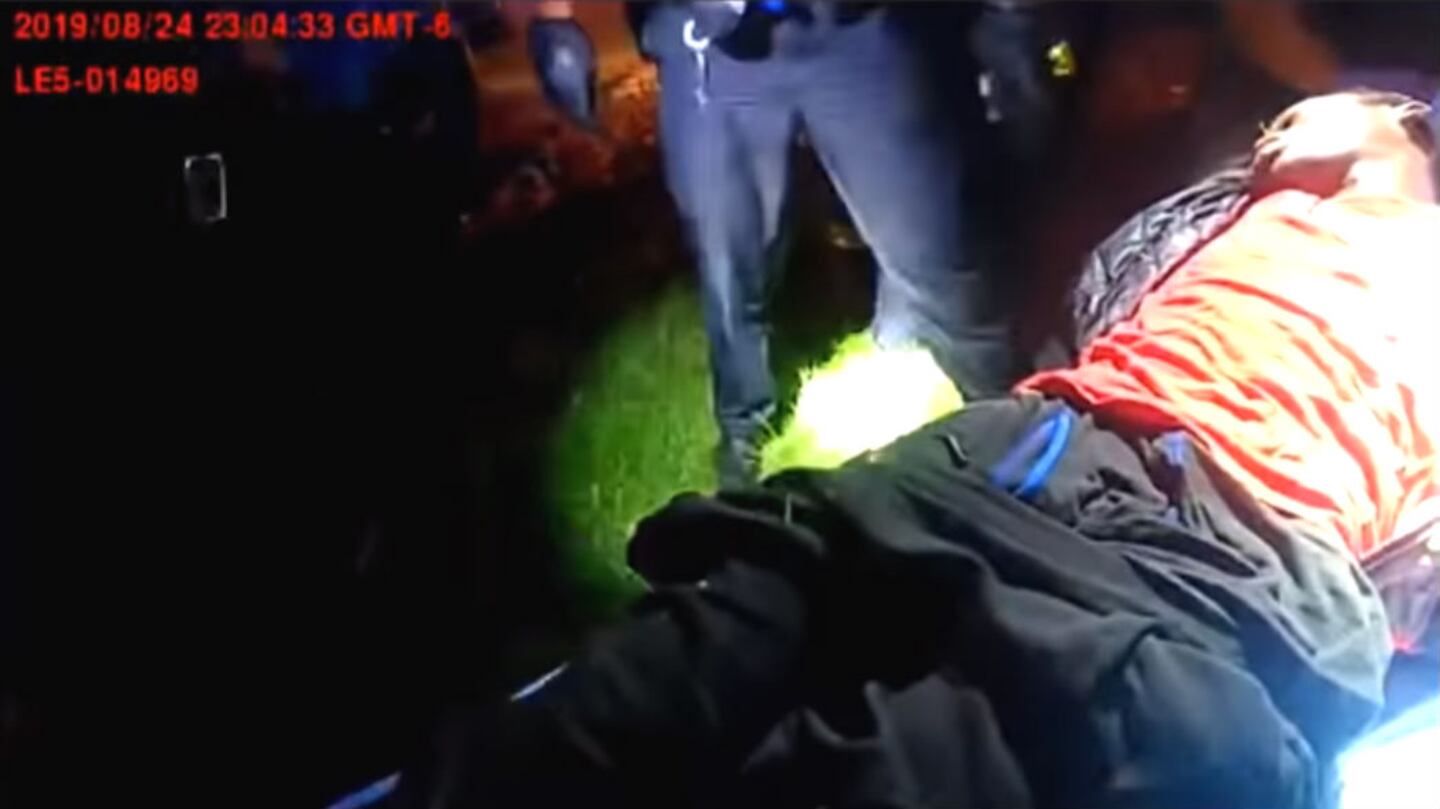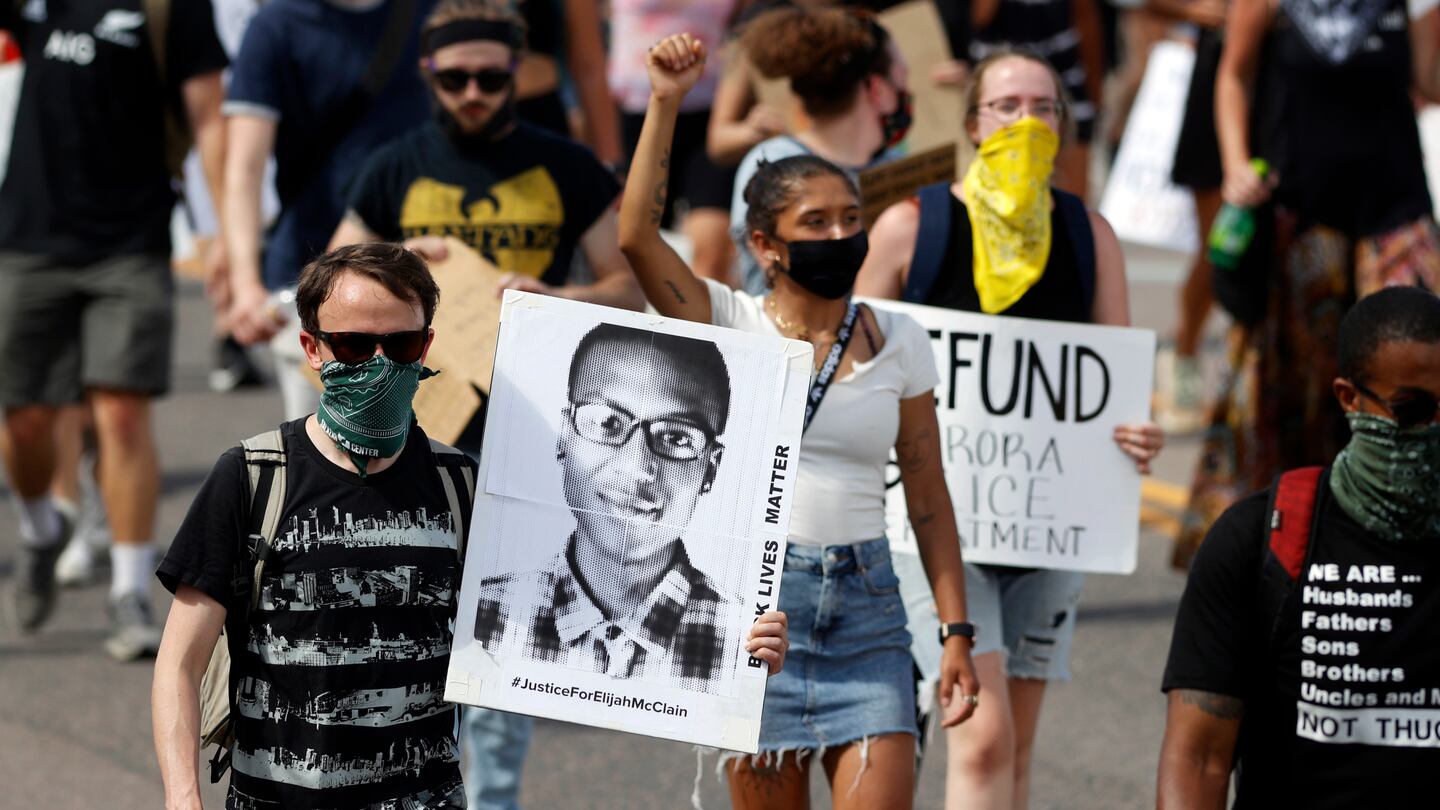AURORA, Colo. — A Colorado grand jury has indicted three Aurora police officers and two fire paramedics in the death of Elijah McClain, an unarmed Black man stopped as he walked home from a convenience store in 2019.
McClain, 23, died six days after the Aug. 24, 2019, stop, during which he was thrown to the ground, put in a carotid chokehold and forcibly injected with an overdose of ketamine, after which his heart stopped.
The entire interaction between McClain, the officers and the medics was captured in heartbreaking detail by the officers’ body-worn cameras.
McClain was declared brain-dead three days later and was ultimately removed from life support. Monday marked the second anniversary of his death.
Two years ago today, Elijah McClain was taken off life support. Two years without justice. Officers stopped Elijah while he was walking home, placed him in a chokehold, and paramedics injected him with ketamine. No one has been held accountable.
— Legal Defense Fund (@NAACP_LDF) August 30, 2021
Elijah should still be alive. pic.twitter.com/6zP4XhI5b2
The grand jury, which was impaneled in December, returned a 32-count indictment Friday against Aurora police officers Randy Roedema, 39, and Nathan Woodyard, 32; former officer Jason Rosenblatt, 32; and Aurora Fire Rescue paramedics Jeremy Cooper, 46; and Peter Cichuniec, 49.
“Each of the five defendants faces one count of manslaughter and one count of criminally negligent homicide,” Colorado Attorney General Phil Weiser announced Wednesday.
All but Woodyard are also charged with second-degree assault with the intent to cause great bodily injury or causing great bodily injury, as well as one count each of a crime of violence related to the assault charge.
Cooper and Cichuniec are each charged with two additional counts of second-degree assault. One charge is assault with a deadly weapon — the ketamine — and the other is assault by administering the ketamine without consent.
The five men turned themselves in to police in Glendale on Wednesday. They were each booked on the charges and released on $10,000 bond.
Watch Wednesday’s news conference below, courtesy of Fox 31 in Denver.
Aurora city officials announced that all four of the men who still work for the city have been indefinitely suspended without pay.
“This effectively separates the employee from the city of Aurora pending the outcome of the criminal case,” Aurora City Manager Jim Twombly said in a statement.
Rosenblatt was one of three officers fired last July after a colleague texted him a photo showing fellow officers mocking McClain’s death as they stood near a protest being held in McClain’s name.
“Ha ha,” Rosenblatt responded to the text.
A fourth officer resigned in connection with the photo scandal.
Read Friday’s 32-count indictment below.
McClain’s mother, Sheneen McClain, told The Associated Press on Wednesday that even with charges filed, she remains steadfast in her efforts to hold police accountable for her son’s death.
“What I set out to do is still not over, but I’m halfway there. I’m halfway there,” she said.
In an interview with ABC News, McClain said she prays for her son’s killers to go to prison.
“They had no right to stop him. They had no right to handcuff him, brutalize and terrorize him, or inject him with ketamine,” McClain told the network.
Elijah McClain’s death garnered national attention last year in the wake of the May 25, 2020, death of George Floyd at the hands of Minneapolis police officers. Like Floyd, some of McClain’s last words were, “I can’t breathe.”
The phrase became a rallying cry for protesters nationwide who seek changes in policing. Sheneen McClain could often be found at the front of the crowds demanding action in her son’s death.
A ‘sketchy’ man and an unwarranted stop
The events leading to McClain’s death began with a 911 call in which a passing driver reported a “sketchy” man in a ski mask walking near the intersection of East Colfax Avenue and Billings Street in Aurora. The driver, who told a dispatcher that the pedestrian “might be a good person or a bad person,” said the man was waving his arms around.
The caller said he was not in any danger from the man he saw.
Woodyard, who arrived first, found McClain walking along Billings on his way home from buying a drink for his cousin. His family would later say that McClain, who suffered from anemia, was often cold and wore his mask to keep warm, even in summer.
As he walked on the sidewalk, McClain carried a plastic grocery bag and was listening to music through earbuds plugged into his cellphone.
The arm-waving appeared to be along to the music. His plastic sack contained cans of iced tea, according to the indictment.
Woodyard almost immediately put his hands on McClain, who told the officer he was going home and asked repeatedly to be left alone.
McClain, a deeply introverted massage therapist, was described by loved ones as gentle and kind. Adept at the violin, he would play his music at a local animal shelter because he believed the music could soothe the animals who were scared.
Shortly after Roedema and Rosenblatt arrived, the stop turned increasingly physical as they tried to help Woodyard keep McClain from walking away. They forced McClain into the grass and against the exterior wall of an apartment building.
“I am an introvert. Please respect the boundaries that I am speaking,” McClain told the officers.
The officers told McClain to relax, at which point he told them: “I’m going home. Leave me alone.”
“Relax, or I am going to have to change this situation,” one officer responded.
After Roedema claimed that McClain had gone for Rosenblatt’s gun, the first of multiple chokeholds was administered.
The bodycam footage does not show McClain attempting to touch any officer’s gun, and Rosenblatt told authorities afterward that he did not feel anyone make contact with the weapon, according to the indictment.
The three officers took McClain down to the ground. He would never get up again.
The indictment alleges that all three officers, who had combined law enforcement of nearly 16 years, had been trained in the carotid hold — including learning that the dangers posed by the hold meant never administering it more than once.
The first chokehold was unsuccessful, but McClain lost consciousness on the second application of the controversial technique, which temporarily cuts off blood to a person’s brain. When McClain awoke, he begged repeatedly to be let up.
Watch all of the body camera footage from multiple Aurora police officers below. Warning: The images may be disturbing to some viewers.
Between sobs, McClain told the officers he could not breathe.
“I have my ID right here. My name is Elijah McClain. That’s my house. I was just going home,” McClain cried. “I’m an introvert. I’m different. I’m just different, that’s all. That’s all I was doing. I’m so sorry.”
According to the indictment, McClain vomited multiple times, including inside his ski mask, while he was being held down. The mask remained on his head until after he was handcuffed, and the cuffs, which were secured behind his back, left him unable to remove the mask after vomiting in it.
As officers awaited the arrival of paramedics, who were called out after McClain lost consciousness, they continued to put their weight on the slender man, who wept, repeatedly cried out in pain and complained of breathing trouble.
McClain suffered from asthma, his family has said.
None of the officers checked McClain’s pulse as he lay there or monitored his airway, breathing or circulation, the indictment indicates. Roedema, the senior patrol officer at the scene, remained on McClain’s back and ignored his complaints about his breathing.
“Other officers on the scene told Roedema to make sure Mr. McClain could breathe, and Roedema dismissed those reminders, asserting that Mr. McClain could breathe,” according to the indictment.
The indictment points out that gurgling sounds could be heard coming from McClain as he lay pinned down on his side. The sounds were audible on the bodycam footage.
“Medical evidence indicated that this was evidence of potential aspiration while he was restrained,” the document reads. “Mr. McClain’s breathing further indicated he had hypoxia following the police restraint and use of the carotid control hold.”
Hypoxia is low oxygen to the brain. Medical evidence suggested that McClain also had hypoxemia, or low oxygen to the bloodstream.
Meanwhile, the struggle with the officers caused McClain to develop metabolic acidosis, or too much acid in the blood, the indictment states. Separately and together, each of those conditions poses a “substantial risk of death,” as well as a risk to organ function.
Enter the paramedics
A scathing, 157-page investigative report commissioned by the city and released in February found many of the same problems cited in the grand jury indictment.
The report indicated that Woodyard had little, if any, reason to stop McClain that night. It faulted the officers for their use of force and criticized the fire medics, who took the officers’ word that McClain was suffering from “excited delirium.”
When the medics arrived, officers told Cooper and Cichuniec that McClain was “obviously on something.” After observing McClain for a minute or two, the paramedics agreed with officers that the prone man had “excited delirium,” which they later said gives a person rapid heart rate and breathing, along with profuse sweating.
The medics never talked to or examined McClain, however, before administering ketamine, a powerful sedative, to keep him calm. They also failed to ask McClain for consent to give him the drug.
Read the investigative report below.
When Cooper said he would give McClain ketamine, Rosenblatt replied, “Yup, sounds good,” according to the indictment.
“Perfect, dude. Perfect,” Roedema agreed.
Roedema also told Cooper that McClain was showing “incredible strength,” another supposed symptom of delirium, and that he “seemed not to respond to pain,” the court document states.
Roedema said that even after McClain sobbed and screamed in pain multiple times during his arrest.
As with the independent investigation, the grand jury found that McClain was given significantly more ketamine than is warranted for a person his size. Cooper, who was in charge of McClain’s medical treatment at the scene, estimated McClain at 200 pounds, which according to fire rescue policy, meant he should get 453 mg of ketamine.
McClain, who was not asked for his weight, actually weighed 143 pounds, which required a dose of about 325 mg for a man his size.
Cooper injected McClain with 500 mg of the drug, which in excess can depress a person’s breathing and, in rare cases, cause cardiac arrest, the indictment states.
McClain’s heart stopped for the first time within three minutes of Cooper injecting him.
Toxicology results later showed that McClain had nothing but marijuana in his system before the ketamine was injected into his body. Marijuana is legal in Colorado.
Search for justice or ‘hysterical overreaction?’
District Attorney Dave Young in 2019 decided not to charge anyone in Elijah McClain’s death because he said an autopsy was unable to determine exactly how McClain died. The autopsy report lists his cause and manner of death as undetermined, though the medical examiner found that intense physical exertion and a narrow left coronary artery were contributing factors.
According to the indictment, however, a forensic pathologist found that McClain died of “complications following acute ketamine administration” during violent restraint from law enforcement and emergency response personnel. The pathologist’s opinion was that the death was a homicide.
“We’re here today because Elijah McClain is not here, and he should be,” Weiser said Wednesday. “He was a son, a nephew, a brother and a friend.”
Never forgotten. #ElijahMcClain pic.twitter.com/mvP1ELbSzr
— Ava DuVernay (@ava) September 1, 2021
Following the attorney general’s announcement, the Aurora Police Association spoke out in support of the officers, pointing out that then-police Chief Nick Metz “stated clearly” immediately after McClain’s death that he had not been murdered by officers.
“Nothing has changed. Our officers did nothing wrong,” according to a statement posted on the association’s Facebook page.
The statement appears to cast blame on the medics, as well as on McClain himself.
“Mr. McClain died due to a combination of exertion due to his decision to violently resist arrest and a pre-existing heart condition. He was alive and talking when the officers turned him over to EMS,” the statement reads. “There is no evidence that APD officers caused his death.”
Body camera footage shows, however, that McClain had stopped struggling with officers and had gone quiet by the time the medics arrived.
The police association’s statement described the public outcry over McClain’s death as a “hysterical overreaction” that has damaged the department. It urged residents to take action.
“This fall, the public has the opportunity to restore sanity to this situation in the city council elections,” the post read.
At Wednesday’s news conference, Weiser said the initial investigation by Aurora police officials was limited — a finding mirrored by the city’s outside investigation. The attorney general said his office had the option of simply reviewing the initial probe or undertaking additional fact-finding.
His staff chose the latter.
>> Read more true crime stories
They turned to a grand jury in December because the jury’s enhanced investigative powers could be utilized to obtain documents and compel testimony from witnesses who otherwise might not be accessible, he said.
“Whenever a person dies after an encounter with law enforcement, the community deserves a thorough investigation,” Weiser said. “Mr. McClain’s family deserves it. And justice requires it.”
Weiser acknowledged that the case will be a difficult one to prosecute, as are most cases involving alleged police brutality.
“Our goal is to seek justice for Elijah McClain, for his family and friends and for our state,” Weiser said. “In so doing, we advance the rule of law and the commitment that everyone is accountable and equal under the law.”
“We’re here today because Elijah McClain is not here, and he should be,” he added.
©2021 Cox Media Group

